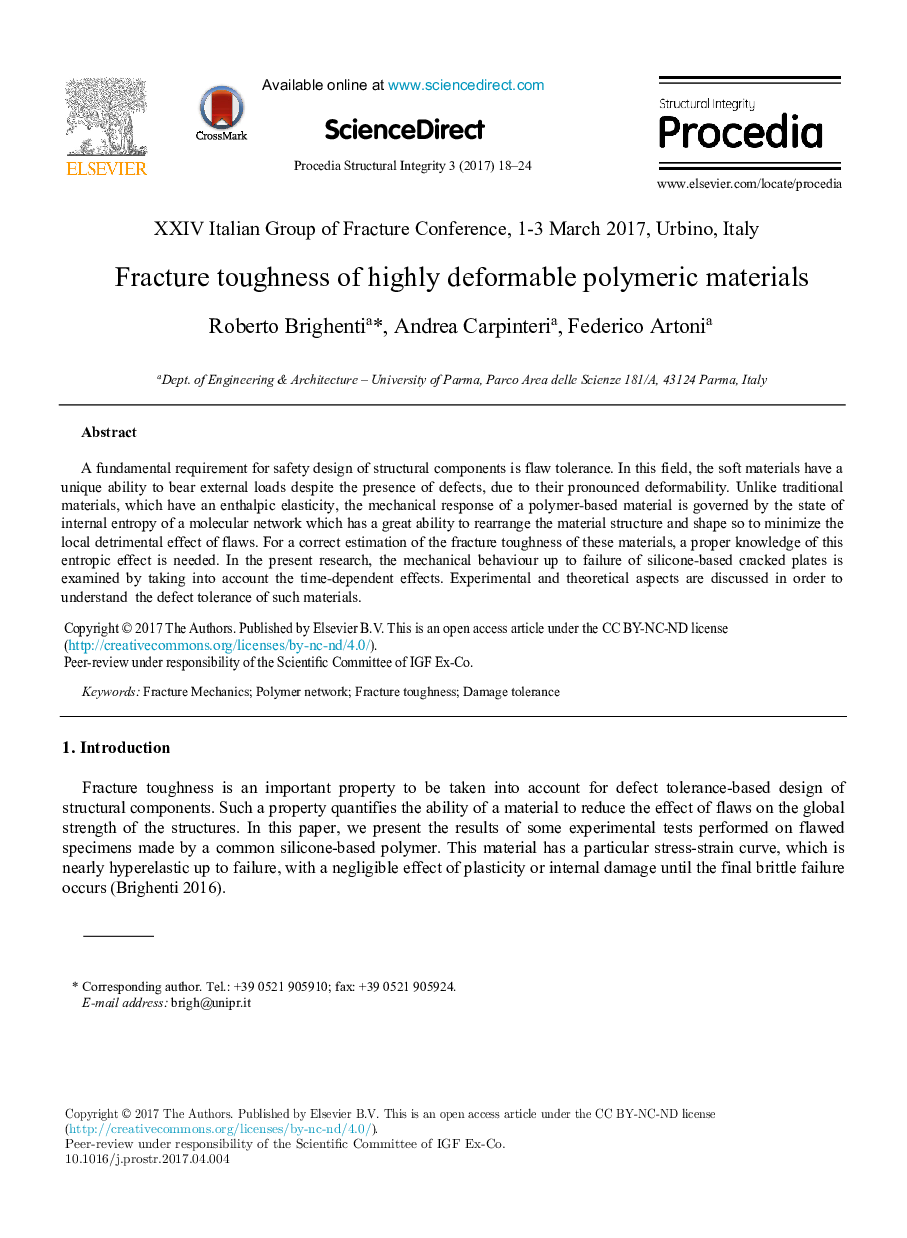| Article ID | Journal | Published Year | Pages | File Type |
|---|---|---|---|---|
| 5452704 | Procedia Structural Integrity | 2017 | 7 Pages |
Abstract
A fundamental requirement for safety design of structural components is flaw tolerance. In this field, the soft materials have a unique ability to bear external loads despite the presence of defects, due to their pronounced deformability. Unlike traditional materials, which have an enthalpic elasticity, the mechanical response of a polymer-based material is governed by the state of internal entropy of a molecular network which has a great ability to rearrange the material structure and shape so to minimize the local detrimental effect of flaws. For a correct estimation of the fracture toughness of these materials, a proper knowledge of this entropic effect is needed. In the present research, the mechanical behaviour up to failure of silicone-based cracked plates is examined by taking into account the time-dependent effects. Experimental and theoretical aspects are discussed in order to understand the defect tolerance of such materials.
Related Topics
Physical Sciences and Engineering
Materials Science
Materials Chemistry
Authors
Roberto Brighenti, Andrea Carpinteri, Federico Artoni,
